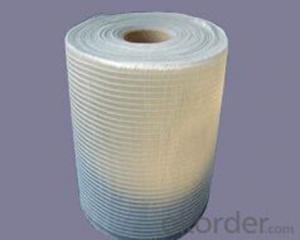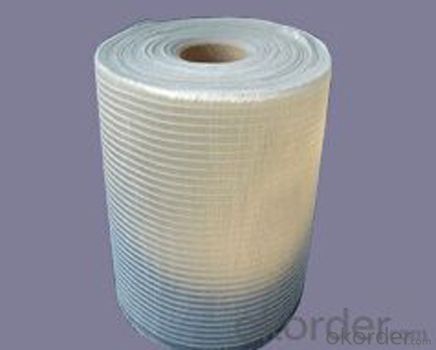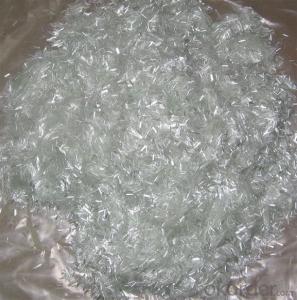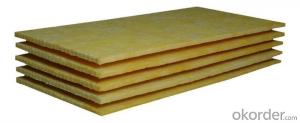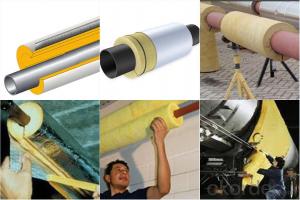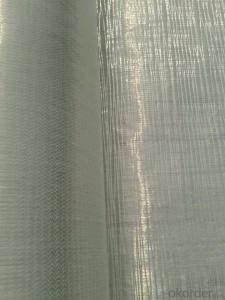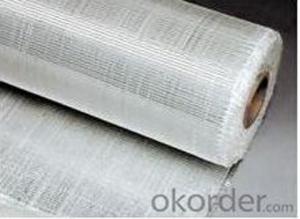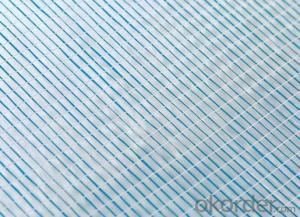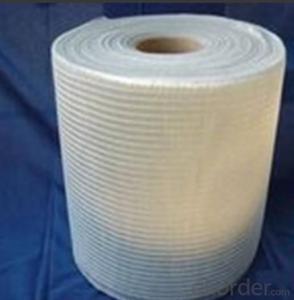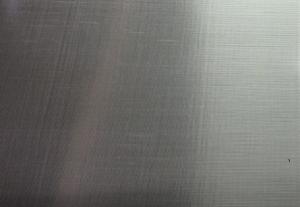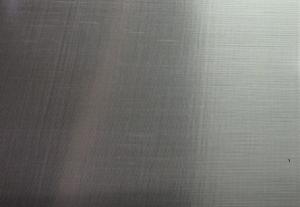Fiberglass Mat Tissue Unidirectional Fabric 450gsm
- Loading Port:
- Shanghai
- Payment Terms:
- TT or LC
- Min Order Qty:
- 10000 kg
- Supply Capability:
- 3000000 kg/month
OKorder Service Pledge
OKorder Financial Service
You Might Also Like
Fiberglass Unidirectional Fabric with Density 450gsm
Description
Fiberglass unidirectional fabric is the product combining the roving in certain angel of 0 ℃ or 90 ℃ with polyester yarn.
Products Feature
• Easy to design, high strength in one direction.
• Fiber straight arranged, fiber strength be ultimately used.
• No powder or emulsion, sink quickly, easy to operate.
Applications
Mainly be used as reinforced materials in the composite material industry.
• Matrix: unsaturated polyester resin, vinyl ester resin, epoxy resin and phenolic resin etc.
• Ultimate products: storage tank, tube, pultruded profiles, FRP body of boat, etc.
• Craft: winding, pultrusion, hand lay up, etc.
Images:
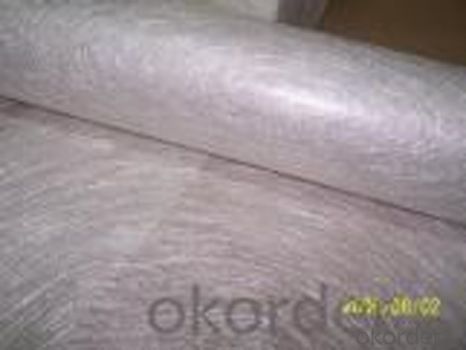
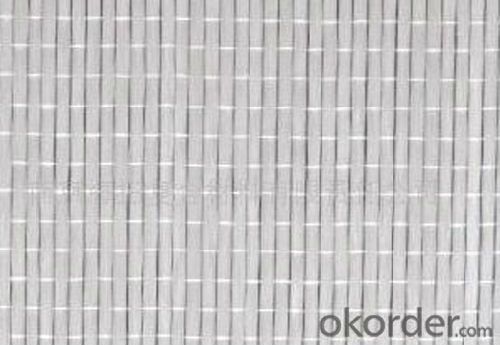
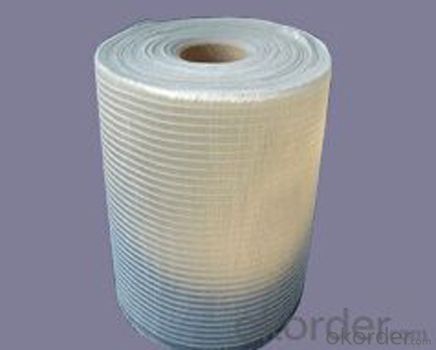
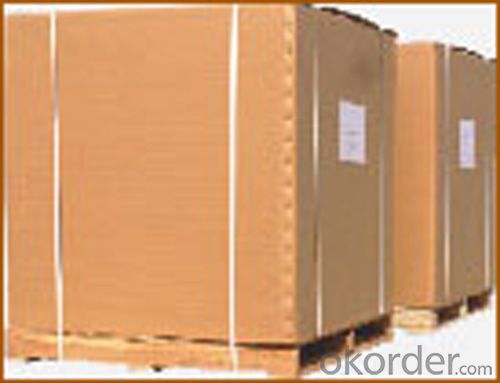
Specifications
specifications
Fibre type
0°Roving
90°Roving
Overall weight
Width
(g/㎡)
(g/㎡)
(g/㎡)
(mm)
EDW227
E-Glass
—
227
227
1524
EDW350
E-Glass
—
350
350
1524
EDW450
E-Glass
—
450
450
1524
EDJ600
E-Glass
480
120
600
1524
EDJ800
E-Glass
600
200
800
1524
EDJ1000
E-Glass
600
400
1000
1524
Packaging: Wrapped in PVC and placed within a cardboard carton.
FAQ
1.Which country do you mainly export to?
A: Our products are very popular in Mid East, India, South East Asia, Latin America, Africa.
2.Q: What’s the advantage of you compared with other suppliers experienced in foreign trade?
A: We have been specialized in FRP products for over decades years and approved by many domestic companies. Except for our quality and price, we’re also able to give you the best service.
3.Q:Can you provide some samples?
A: Yes, of course. We will send you samples for your confirmation before you place firm orders.
- Q: Can fiberglass mat tissue be used for windbreak panels?
- Yes, fiberglass mat tissue can be used for windbreak panels. Fiberglass mat tissue is a lightweight and flexible material that is commonly used in various applications such as insulation, reinforcing materials, and structural support. It is known for its high strength-to-weight ratio, durability, and resistance to weather and environmental conditions. When used in windbreak panels, fiberglass mat tissue can provide additional reinforcement and stability to the panels. It can help withstand strong winds and prevent damage or breakage, making it an effective choice for windbreak panels. Moreover, fiberglass mat tissue is also known for its excellent thermal and acoustic insulation properties. This can be beneficial in windbreak panels as it can help to reduce noise and regulate temperature, creating a more comfortable and protected environment. Additionally, fiberglass mat tissue is fire-resistant, making it a safe option for windbreak panels. Overall, fiberglass mat tissue can be a suitable and reliable material for windbreak panels due to its strength, durability, insulation properties, and resistance to environmental conditions.
- Q: What are the factors that affect the diameter of electrospun nanofibers?
- Application of drug controlled release, tissue engineering, the application of biomimetic materials and artificial organs, sensor film principle: electrospinning is a polymer solution (or melt) forming process of fiber in high voltage field, its core is to take charge of the polymer solution or melt flow and deformation in electrostatic field, and then by solvent evaporation or melt cooling and solid...
- Q: Is fiberglass mat tissue suitable for automotive body panel repairs?
- Indeed, automotive body panel repairs can be successfully carried out using fiberglass mat tissue. This material, known for its robustness, endurance, and adaptability, is widely employed in automotive repairs. Its exceptional ability to conform to the distinctive curves of a vehicle makes it particularly effective in fixing body panels. Moreover, fiberglass mat tissue boasts resistance against corrosion, moisture, and chemicals, rendering it a prime selection for automotive purposes. Furthermore, its lightweight nature aids in reducing the overall weight of the vehicle, thereby enhancing fuel efficiency. All in all, fiberglass mat tissue proves to be a dependable and efficient choice for automotive body panel repairs.
- Q: What is the expected lifespan of fiberglass mat tissue in underground applications?
- Different factors can affect the expected lifespan of fiberglass mat tissue in underground applications. These factors include the conditions of the underground environment, the quality and thickness of the fiberglass mat tissue, and the level of maintenance and care provided. On average, fiberglass mat tissue is known for its durability and longevity, which makes it suitable for use underground. Generally, fiberglass mat tissue is designed to resist corrosion, moisture, and other environmental elements commonly found in underground settings. This makes it a reliable choice for protecting underground pipes, tanks, and other infrastructure from deterioration. When installed correctly and maintained regularly, fiberglass mat tissue can last 50 years or more in underground applications. However, it is important to note that this estimate can vary depending on the specific conditions and usage of the fiberglass mat tissue. To maximize the lifespan of fiberglass mat tissue in underground applications, it is recommended to follow industry best practices. These practices include using proper installation techniques, conducting regular inspections, and promptly addressing any cracks or damage. By following these steps, the lifespan of fiberglass mat tissue can be extended, ensuring long-term reliability and durability underground.
- Q: How is fiberglass mat tissue used in the production of chemical storage tanks?
- Fiberglass mat tissue serves as a reinforcement material in the manufacturing of chemical storage tanks. It is combined with resin to create a composite material that offers strength, durability, and protection against different chemicals. By layering the fiberglass mat tissue within the tank structure, its structural integrity is enhanced, and the risk of leakage is prevented. During the manufacturing process, resin, typically polyester or epoxy, is impregnated into the fiberglass mat tissue to establish a strong bond between the fibers and the matrix. This impregnated mat is then placed on a mold or mandrel and covered with additional layers of resin and mat, resulting in a laminate. The number of layers and thickness can vary based on the desired tank specifications and the chemicals it will store. The combination of fiberglass mat tissue and resin yields outstanding corrosion resistance, making it ideal for storing a wide range of chemicals. Fiberglass is inherently non-reactive and can endure exposure to harsh chemicals, acids, and alkalis without compromising the tank's structural integrity or degrading. Hence, fiberglass mat tissue is the preferred material for chemical storage tanks as it guarantees the safety of stored chemicals and minimizes the risk of leaks or contamination. Moreover, the utilization of fiberglass mat tissue enables the production of tanks with complex shapes and sizes. It can be easily molded and formed into various configurations, providing flexibility in design. This ensures that chemical storage tanks can be tailored to specific requirements and seamlessly integrated into diverse industrial applications. In conclusion, fiberglass mat tissue is indispensable in the manufacturing of chemical storage tanks. It reinforces the tank structure, offers chemical resistance, and facilitates the fabrication of tanks with diverse shapes and sizes. When combined with resin, it creates a durable and corrosion-resistant composite material, ensuring the secure storage of chemicals in a variety of industrial settings.
- Q: Can fiberglass mat tissue be used in structural applications?
- Indeed, structural applications can make use of fiberglass mat tissue. This lightweight and flexible material is frequently employed as reinforcement in construction and engineering endeavors. It is often combined with resin or concrete to enhance the structural integrity of diverse components. The remarkable strength-to-weight ratio of fiberglass mat tissue renders it exceptionally fitting for reinforcing walls, roofs, and floors. Furthermore, its resistance to corrosion, moisture, and chemicals allows for its utilization in diverse environments. The wide-ranging applicability and enduring nature of fiberglass mat tissue contribute to its widespread preference in structural applications.
- Q: How does fiberglass mat tissue perform in terms of moisture vapor resistance?
- Fiberglass mat tissue generally performs well in terms of moisture vapor resistance. The material itself is not permeable to moisture, meaning it acts as a barrier to prevent the passage of water vapor. This characteristic makes fiberglass mat tissue suitable for applications where moisture control is important, such as in roofing or insulation. The moisture vapor resistance of fiberglass mat tissue can be further enhanced by using it in conjunction with other materials, such as vapor barriers or moisture-resistant coatings. These additional layers can provide an extra level of protection against moisture infiltration, improving the overall performance of the fiberglass mat tissue in terms of moisture vapor resistance. However, it is important to note that the specific moisture vapor resistance of fiberglass mat tissue can vary depending on its thickness, density, and composition. Thicker and denser fiberglass mats generally offer higher moisture vapor resistance compared to thinner and less dense ones. Additionally, the presence of any manufacturing additives or coatings can also affect the material's moisture vapor resistance properties. In summary, fiberglass mat tissue is known for its good moisture vapor resistance capabilities, but its exact performance in this regard can be influenced by various factors. It is advisable to consult product specifications or manufacturers' recommendations to determine the specific moisture vapor resistance of a particular fiberglass mat tissue product.
- Q: How does the thickness of fiberglass mat tissue affect its performance?
- The performance of fiberglass mat tissue is greatly influenced by its thickness. Thicker mat tissues generally offer superior strength and durability compared to thinner ones. When the mat tissue is thicker, there is a higher proportion of resin to glass, resulting in increased stiffness and toughness. This higher resin content improves the overall structural integrity and mechanical properties of the mat tissue, reducing the risk of delamination and enhancing resistance to impact and fatigue. Furthermore, thicker fiberglass mat tissues are more effective in providing thermal and acoustic insulation. The increased thickness allows for a greater concentration of fibers, enhancing the material's ability to trap air and reduce heat transfer or sound transmission. However, it is important to consider the specific application and requirements when determining the appropriate thickness of fiberglass mat tissue. While thicker tissues generally offer better performance, they may also be heavier and more costly. Therefore, it is crucial to strike a balance between the desired performance characteristics and practical considerations such as weight, cost, and ease of installation.
- Q: Can fiberglass mat tissue be used for making lightweight doors?
- Yes, fiberglass mat tissue can be used for making lightweight doors. Fiberglass mat tissue is a lightweight material that is commonly used in various industries for its strength and durability. It is made of thin strands of fiberglass that are bonded together with a binder, resulting in a strong and flexible material. When used in the construction of doors, fiberglass mat tissue offers several advantages. Firstly, it is lightweight, making it ideal for creating doors that are easy to handle and install. This can be particularly beneficial in residential or commercial settings where doors are frequently opened and closed. Additionally, fiberglass mat tissue possesses excellent thermal and acoustic insulation properties. This means that doors made with this material can effectively block out noise and regulate temperature, creating a more comfortable and energy-efficient environment. Furthermore, fiberglass mat tissue is resistant to moisture, rot, and insects, making it a durable and long-lasting option for door construction. It can withstand harsh weather conditions, making it suitable for both interior and exterior doors. Overall, fiberglass mat tissue is a versatile material that can be used to create lightweight doors that offer strength, durability, insulation, and resistance to various environmental factors.
- Q: Is fiberglass mat tissue suitable for automotive applications?
- Yes, fiberglass mat tissue is suitable for automotive applications. Fiberglass mat tissue is a versatile material that offers numerous benefits when used in automotive applications. It provides excellent strength and durability, which is essential for automotive parts that need to withstand harsh conditions and heavy usage. Fiberglass mat tissue also has good thermal and electrical insulation properties, making it suitable for applications where temperature resistance and electrical insulation are required. Additionally, fiberglass mat tissue is lightweight, which can help improve fuel efficiency and overall vehicle performance. It is also easy to mold and shape, allowing manufacturers to create complex automotive parts with precision. Furthermore, fiberglass mat tissue is resistant to corrosion, chemicals, and UV radiation, ensuring the longevity and reliability of automotive components. Overall, the unique properties of fiberglass mat tissue make it an ideal choice for various automotive applications, including but not limited to body panels, interior components, structural reinforcements, and sound insulation. Its strength, durability, insulation properties, lightweight nature, and resistance to corrosion and chemicals make it a reliable and cost-effective material for the automotive industry.
Send your message to us
Fiberglass Mat Tissue Unidirectional Fabric 450gsm
- Loading Port:
- Shanghai
- Payment Terms:
- TT or LC
- Min Order Qty:
- 10000 kg
- Supply Capability:
- 3000000 kg/month
OKorder Service Pledge
OKorder Financial Service
Similar products
Hot products
Hot Searches
Related keywords
